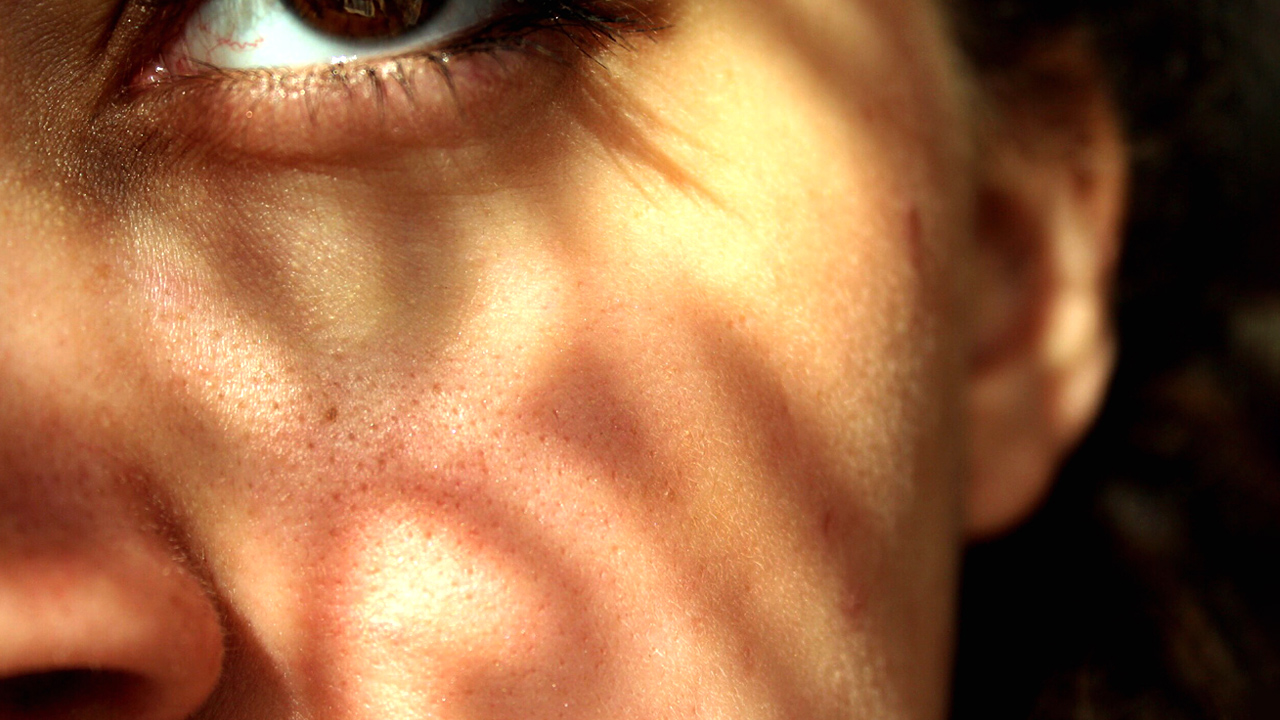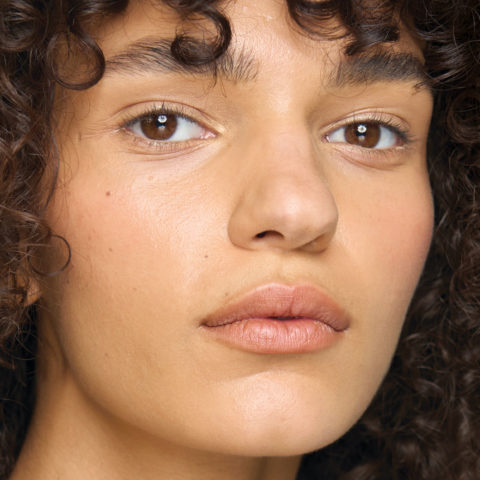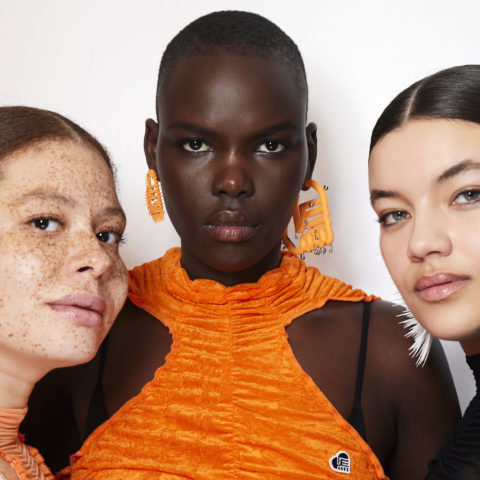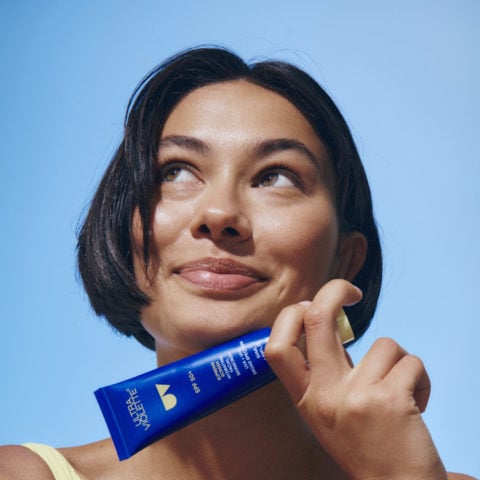Can You Actually Shrink Your Pores?
Plus: Four other pore myths, busted
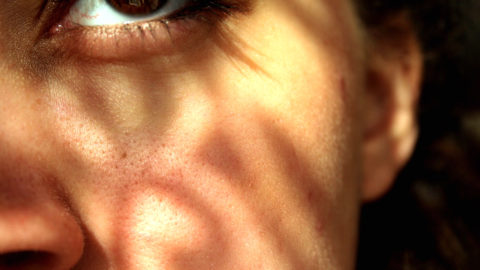
No matter where you get your beauty info from—whether it’s magazines, social media or good ol’ word of mouth—it’s safe to say that the abundance of sources and information available at any given time has made things, well, pretty confusing. With so much info at our fingertips, it can be tricky to differentiate between what’s factual and what isn’t. That’s where we come in. We’ve tapped the top pros in every area of the beauty industry, from hair care to skincare to makeup and more, to bust some common myths and shed light on what you *actually* need to know.
Have you ever steamed your face in the hopes of ‘opening up’ your pores and clearing them of whatever gunk is trapped inside? What about splashed your face with ice-cold water to “close” your pores back up, tightening and shrinking them in the process? For many people, pore size is a major skin concern, and yet how exactly our pores function remains a mystery, thanks to contradictory and confusing marketing around skincare products that target the issue.
So to clear up any long-standing misconceptions about what you can and cannot change when it comes to pore size and appearance, we reached out to two skincare pros who set the record straight, once and for all.
True or False: Pores can open and close with different temperatures
False. “Pores are not doors; they do not open and close,” says Lindsay Barras, Education Manager at Dermalogica Canada. You may have heard this well-known beauty tip before, which claims that hot water—or steam—can open pores, while a blast of cold water will close them. This myth has been passed down for ages, like a game of broken telephone, and it’s because “heat can dilate pores slightly and cold will do the opposite,” explains Dr. Robert Solomon, dermatologist at Maple, a Canadian telemedicine company that offers services like psychotherapy, dermatology, oncology and more. “But the effects are so temporary that washing your face with warm or cold water won’t make a difference to the everyday appearance of your pores.” Furthermore, Barras warns that changing water temperature affects our blood vessels, “which can actually leave skin feeling sensitized.”
True or False: You can shrink your pores with skincare products
False—BUT, you can change their appearance. “Pore size is mainly determined by factors like genetics and hormones,” says Dr. Solomon. “Using products like retinol/retinoids, or 2% salicylic acid can make them appear smaller, but they don’t actually change the size of the pores themselves.” So if you want to make your pores look less noticeable, dealing with congestion caused by excess sebum and debris will help. By using the right products, “you can work to control the amount of oil that is produced within your pores and clear debris buildup that can give the impression of larger pores,” says Barras. And finally, making sure SPF is a part of your daily routine is a great way to manage the appearance of pores. “Sun exposure can permanently dilate pores over the course of years,” says Dr. Solomon.
Good morning. Your pores don’t open or close and they never have or will. Pores aren’t muscles. Once they stretch due to congestion, they can’t naturally return back to their genetic size. Sorry 💔
— Your Skincare Fav ✨ (@caveofbeauty) August 31, 2020
True or False: Blackheads are actually makeup buildup
False. Actually, blackheads are a type of acne caused by “a combination of a buildup of dead skin cells and oxidized oil,” explains Barras. When dead skin and sebum become trapped within your pores and are then exposed to oxygen, the material oxidizes and turns black, resulting in blackheads. Yes, it’s still kind of gross, but at least it’s not weeks-old makeup stuck in your face?
True or False: Dry skin types have smaller pores
It depends. Now that we know that blackheads and clogged pores are often the result of excess oil buildup, it would make sense that dry skin types (AKA skin that’s lacking oil) would have less issues with pore congestion, right? This is often the case, but “people with dry skin can have large and blocked pores as well,” explains Dr. Solomon. In fact, “in some cases, dry skin can even be a contributor to the buildup of dead skin cells that cause [pore] blockages.” If you have dry skin, you probably know the pain of excess skin shedding and peeling all too well, and unfortunately that peeling skin can get trapped in your pores.
To minimize flaking, especially as the weather gets drier and colder, opt for lukewarm—rather than hot—water when washing your face, reach for thick moisturizers, and consider topping off your skincare regimen with a nourishing plant oil (like jojoba, sunflower or marula) to lock in hydration.
True or False: Pore strips can remove blackheads, making pores appear clearer and smaller
False. “The bacteria that causes blackheads lives much deeper in your pores than the mix of skin cells and oils (called sebaceous filaments) that you see when you peel off a pore strip,” explains Dr. Solomon. Even worse, pore strips can actually cause inflammation in the skin and lead to the spread of breakout-causing bacteria, says Barras. “Having professional extractions done by a skin therapist is the safest way to remove blackheads, while exfoliation at home is the most effective way of preventing and reducing them.” As satisfying as they may be, we suggest you put down the pore strips and reach for chemical exfoliants, like salicylic acid, instead. “While pore strips can temporarily make pores appear smaller, the blockages you remove will most likely be back in one to two days,” says Dr. Solomon.

